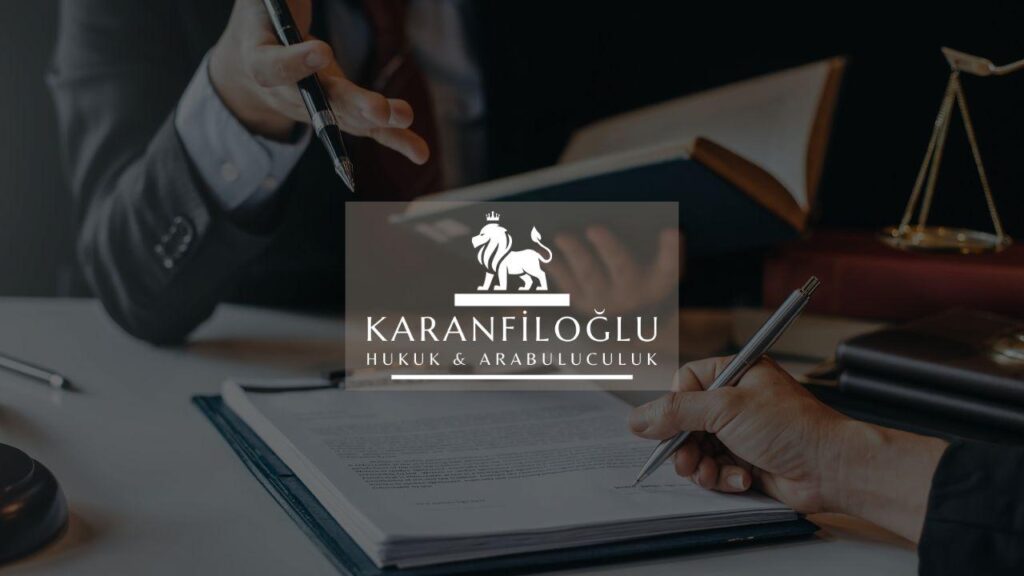Navigating employment disputes in Turkey can be a complex process due to the multifaceted nature of labor laws and regulations. At Karanfiloglu Law Office, we specialize in providing comprehensive legal services to help our clients manage these challenges effectively. Turkish labor law is primarily governed by the Labor Law No. 4857, which outlines the fundamental principles concerning employment contracts, working conditions, and the rights and obligations of employers and employees. Article 20 of this law allows employees to contest termination decisions, emphasizing the need for proper legal guidance. Additionally, the Turkish Code of Obligations No. 6098 sets forth rules regarding employment contracts and obligations emanating from the labor relationship, underlining the importance of expert legal intervention in resolving employment disputes. Our team of legal experts at Karanfiloglu Law Office stands ready to assist clients in navigating the legal landscape, ensuring that their rights and interests are safeguarded throughout the dispute resolution process.
Understanding the Key Labor Laws in Turkey
Understanding the key labor laws in Turkey is crucial for both employers and employees to ensure compliance and protect their rights. The Labor Law No. 4857 is a central piece of legislation that addresses core issues such as employment contracts, working hours, overtime, and leave entitlements. For instance, Article 41 of the Labor Law No. 4857 defines the conditions under which overtime work is permitted and mandates additional compensation for such hours. Additionally, Article 24 and Article 25 outline the specific grounds for termination of employment contracts, whether initiated by the employee or employer, reinforcing the importance of adhering to legal procedures to avoid disputes. Furthermore, the Turkish Code of Obligations No. 6098 complements these provisions by setting standards for the mutual obligations of employers and employees, ensuring a balanced labor relationship. At Karanfiloglu Law Office, our extensive knowledge of these laws enables us to provide precise legal advice and representation, helping our clients navigate the complexities of Turkish labor regulations.
An essential aspect of understanding Turkish labor laws is recognizing the importance of social security regulations, which are governed by the Social Insurance and General Health Insurance Law No. 5510. This law outlines the social security rights and obligations of both employers and employees, including contributions to social security premiums and health insurance. Article 23 of Law No. 5510 emphasizes the mandatory enrollment of employees in the social security system from their first day of employment, ensuring that workers are covered for health and pension benefits. Non-compliance with these provisions can lead to significant penalties for employers, as stipulated in Article 102 of the same law. Karanfiloglu Law Office provides expert guidance to ensure that our clients comply with these critical regulations, safeguarding them from potential legal and financial repercussions. By understanding and adhering to these social security requirements, both employers and employees can maintain a secure and compliant working environment.
Effective dispute resolution mechanisms are another cornerstone of Turkish labor law. The Labor Courts Law No. 7036 establishes specialized labor courts dedicated to resolving employment disputes promptly and fairly. Article 3 of this law mandates compulsory mediation as a prerequisite to filing a lawsuit concerning employment disputes, emphasizing the significance of reaching an amicable settlement. Should mediation prove unsuccessful, the matter can then proceed to the labor courts, where qualified legal representation becomes indispensable. At Karanfiloglu Law Office, we understand that navigating these judicial processes can be daunting, and our experienced team is prepared to assist clients through every stage, from mediation to court proceedings. Our commitment to providing robust legal support ensures that our clients’ rights are effectively upheld, contributing to a fair and balanced resolution of employment disputes.
Effective Strategies for Employers to Prevent Disputes
One of the most effective strategies for employers to prevent employment disputes is to ensure that employment contracts are comprehensive and clear, aligning with the legal requirements set forth by the Labor Law No. 4857 and the Turkish Code of Obligations No. 6098. Contracts should explicitly outline the roles, responsibilities, working conditions, and terms of termination to minimize ambiguity and misunderstandings. Article 8 of the Turkish Code of Obligations stipulates that contracts should clearly state the obligations of both parties, and regular reviews can ensure they remain up-to-date and relevant. Moreover, implementing clear internal policies and providing regular training for both management and staff about their rights and responsibilities under the law can further reduce the risk of disputes. These proactive measures not only foster a transparent working environment but also help in resolving potential issues before they escalate into formal disputes.
Regularly conducting audits and assessments of workplace practices can serve as another key strategy in preventing employment disputes. These audits can help identify and address any non-compliance issues with the Labor Law No. 4857 and the Turkish Code of Obligations No. 6098 before they become significant problems. Article 77 of the Labor Law emphasizes the importance of maintaining safe and healthy working conditions, requiring employers to conduct risk assessments and take necessary precautions to mitigate workplace hazards. Employers should ensure that their policies are not only compliant with mandatory legal standards but also that they are effectively communicated and implemented across all levels of the organization. Additionally, establishing a robust grievance mechanism that allows employees to voice their concerns in a structured and non-retaliatory environment can significantly contribute to resolving issues early and amicably. This holistic approach to compliance and employee engagement can lead to a more harmonious workplace, thereby minimizing the risk of labor disputes.
Lastly, fostering open communication channels between management and employees is crucial for preventing employment disputes. Employers should encourage an open-door policy where employees feel comfortable discussing their concerns and grievances without fear of reprisal, as mandated by Article 18 of the Labor Law No. 4857. Regular meetings, feedback sessions, and surveys can be effective tools in gauging employee satisfaction and addressing any issues promptly. Additionally, setting up a mediation mechanism within the organization can provide a more informal and less adversarial means of resolving conflicts, which complements the formal dispute resolution processes outlined in the labor laws. By taking these steps, employers not only promote a positive workplace culture but also demonstrate their commitment to maintaining a fair and equitable work environment, thereby reducing the likelihood of employment disputes escalating into legal battles.
How Employees Can Protect Their Rights in the Turkish Workplace
Employees in Turkey can protect their rights in the workplace by being well-informed about the laws that safeguard their employment conditions. Under Article 18 of the Labor Law No. 4857, an employer must have a valid reason for terminating an employment contract, and lack of conformity with business ethics or performance may not be sufficient without proper documentation and procedure. Employees should also be aware of their rights under Article 22, which regulates changes in working conditions; employers cannot unilaterally alter employment terms without obtaining the employee’s consent in writing. Furthermore, in the event of disputes, Article 30 emphasizes the right to equal treatment, ensuring employees are not discriminated against based on language, race, sex, political opinion, philosophical belief, religion, or similar reasons. By understanding these protections, employees can more effectively challenge unfair practices and seek appropriate legal remedies through our expert team at Karanfiloglu Law Office.
One of the key mechanisms for employees to protect their rights is through the mediation process, which is a mandatory first step before pursuing litigation in most employment disputes. Based on Article 3 of the Labor Courts Law No. 7036, parties must seek resolution through mediation before filing a lawsuit related to employment termination, unpaid wages, overtime, annual leave, and other employment-related issues. This process is aimed at achieving a faster and more amicable settlement. Should mediation fail, the employee has the right to proceed with filing a lawsuit within the prescribed time limits, such as 30 days for contesting termination under Article 20 of the Labor Law No. 4857. Consultations with experienced legal professionals at Karanfiloglu Law Office can provide invaluable support during mediation sessions and, if necessary, guide employees through the subsequent litigation process to ensure their rights are fully upheld.
Additionally, employees can protect their rights by keeping thorough documentation of their work-related activities and communications. Detailed records, such as employment contracts, performance evaluations, attendance records, salary slips, and any written correspondence with the employer, can be crucial during dispute resolutions. Article 75 of the Labor Law No. 4857 mandates employers to maintain personnel files for each employee, which serve as an essential resource during legal proceedings. Furthermore, employees should be proactive in reporting any grievances or unfair practices to their employer or relevant workplace committee as outlined in Article 25, which deals with immediate termination rights arising from health, ethics, and goodwill breaches. By maintaining comprehensive records and promptly addressing issues, employees can strengthen their positions in potential disputes. At Karanfiloglu Law Office, we guide our clients in effectively documenting their employment matters, ensuring they are well-prepared to assert their rights when conflicts arise.
Disclaimer: This article is for general informational purposes only and you are strongly advised to consult a legal professional to evaluate your personal situation. No liability is accepted that may arise from the use of the information in this article.







